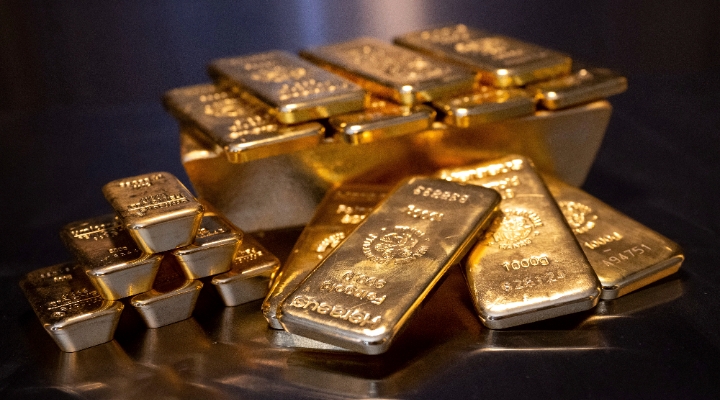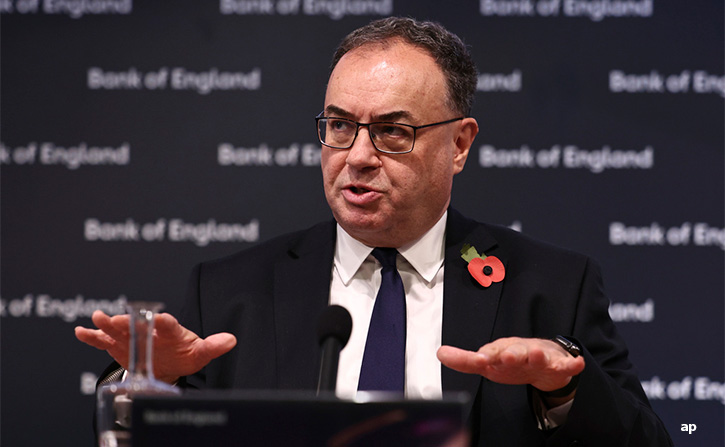
Curious about what fund managers will be buying and selling in 2024? We have poured over the 2024 outlooks and these are the takeaways and contradictions across the industry.
Will UK Equity Get its Comeback?
Several managers believe there are strong signs UK macroeconomic conditions are turning positive heading into 2024 after relative valuations hit "all-time lows".
Social investment fund house Martin Currie says several signals point to a soft landing: high rise in yields, improvements in manufacturing, falling food prices, a continuing labour shortage, and persistent real wage growth that could lead to greater income for the government. Government measures to reform the UK stock market could help too.
As a result, it expects a rotation from value to growth, with opportunities in consumer and travel, housebuilders, software and B2B technology.
Invesco is also optimistic about UK equities offering "an attractive source of real income", but higher-for-longer interest rate concerns remain. Dividends should keep pace with inflation over time, and the company is eyeing the utility and industrial sectors over the next year, including energy transition opportunities and power and water infrastructure.
But BlackRock is less convinced. Its take on the UK is unchanged. "We are neutral. We find attractive valuations better reflect the weak growth outlook and the Bank of England’s sharp rate hikes to fight sticky inflation."
You Have to be a Good Stock Picker in Europe
Where European equities will go in 2024 seems to be one of the more contested topics. BlackRock and HSBC Global Private Banking are both less taken by cheaper valuations on the continent, remaining underweight. Blackrock says: "the European Central Bank is holding policy tight in a slowdown. Valuations are attractive, but we don't see a catalyst for improving sentiment."
Bank of America is also negative about Europe, expecting a dramatic 15% downside for European equities by mid-year with weakening momentum. It could, however, rebound in the second half of 2024, a sentiment mirrored by Amundi.
On the flip side, DWS thinks European equities have great potential next year. It says second-line stocks that have suffered from risk aversion and currently trade at discounts as they will benefit from a soft landing for the economy. Pictet Asset Management also states that European equities will surprise in a positive way, with solid outperformance prospects.
Invesco also believes in European equities, particularly for long-term investors, but in a complicated environment, you have to be a good stock picker. Its managers like cyclical, non-consumer facing sectors such as industrials, and traditionally defensive areas such as large-cap pharmaceuticals. Energy names will continue to benefit from high oil and significant cash generation and higher interest rates are relatively supportive for capital-intensive sectors and banks, it says.
US' Magnificence Will Continue – For Now
The US market was one of 2023's outperformers thanks to the magnificent seven but is continued brilliance guaranteed? Pictet Asset Management expects the stellar status of the US to dim, and DWS favours Europe and Japan to the US due to its high valuations. Robeco adds the US dollar may have peaked as the Fed approaches the cutting phase of the cycle. Fidelity is also confident US interest rates have peaked and growth will moderate.
BlackRock is underweight the broad US equity market as the soft landing rally could lead to disappointment, but the US remains its largest portfolio allocation. Amundi even expects the US to face a mild recession in the first half of 2024, as tight financial conditions begin to impact consumers and businesses, then stabilise in the second half.
HSBC Global Private Banking, meanwhile, is staying overweight; the economy should continue to outperform bearish consensus, high tech valuations are warranted, and a resilient economy should support cheaper sectors too, it says.
Federated Hermes thinks structural tailwinds should be supportive for US small- and mid-caps given that they trade more cheaply than large-caps versus the longer-term average. Tighter monetary policy will be supportive of "quality" companies with strong balance sheets and robust marketing positions and pricing power, it argues.
China Remains Unattractive but Asia Offers Relief
Looking at Asia, most managers believe India equities are preferred to China – but the latter could have a marginally better 2024 than 2023. HSBC Global Private Banking says multiple factors like wealth accumulation, resilience and digital transformation are driving the region against the global headwinds. We recently highlighted three China funds whose outflows haven't dented our analysts' confidence in the managers.
Amundi, on the other hand, says emerging markets are heading towards a cyclical downturn amid weak global demand. In China, additional fiscal stimulus will not reverse the trend towards lower growth but India emerges as a new power offering bright economic prospects amid strong domestic demand and investments. But both Amundi and BlackRock favours EM debt over EM equities.
Beyond the EM regions, many investors remain bullish about Japan equities, which had a stellar 2023 amid a slow revolution in corporate governance. BlackRock says stronger growth is helping earnings top expectations, and shareholder-friendly actions like stock buybacks are positives in this market.
Walter Scott & Partners director Roy Leckie, who is also part of the BNY Mellon Long-Term Global Equity team, is less bullish, however. The recent economic recovery is paradoxically being challenged by the inflation it has long sought, with real wage growth not matching rising prices. Some Japanese manufacturers are also affected by the "sluggish" environment in China.
J. Safra Sarasin Sustainable Asset Management anticipates the Bank of Japan to end negative interest rate policy in in the second quarter of next year, and to gradually lift its policy rate to 0.3% by year end, potentially ending the deflationary mindset.
Fixed Income Will Shine Again
Another consistent view across the board is a positive – almost excited – outlook for bond markets. DWS expects positive total returns in most market segments on the bond markets next year, favouring short and medium-term government bonds and corporate bonds. Yields at the short end should fall: two-year US government bonds by 100 basis points and German short-dated bonds by around 50 basis points.
Columbia Threadneedle, on the other hand, says investors could consider mid- to- long-term US Treasuries and investment-grade corporate bonds, which are offering solid rates of return. Near-double-digit yields in high yield bonds are also tempting, it says, but investors need to consider risk levels.
Bonds should also benefit from the drop in inflation and a start to the easing cycle of the central banks, Pictet says, favouring EM, sovereign, and selected IG corporate bonds.
Vanguard points out that there is potential for near-term volatility due to the interest rates uncertainty – but the recent hikes are the "single best economic and financial development in 20 years for long-term investors". As a result, the 60/40 portfolio is set to strengthen.
"For long-term investors in balanced portfolios, the probability of achieving a 10-year annualised return of at least 7%, the post-1990 average, has risen from 8% in 2021 to 40% today."
Who's Giving Their Portfolio The Golden Touch?
Lastly, we look at the takes on gold. Shard Capital believes the precious metal will keep its shine for the next year as recession risk is getting stronger. Gold should provide adequate, but not necessarily sufficient, buffers, it says, with $2200 per ounce the best-case scenario.
Berenberg uses gold as part of its active liquidity hedge (alongside cash and Bitcoin), saying that in addition to strong central bank demand for gold, we see our liquidity hedge as an important black swan and global risk hedge.
Invesco, on the other hand, explains that the gold price will depend on whether there will be a period of restrictive monetary policy or whether there will be rate cuts. The latter would be a support to non-yielding gold – but "note we were in a similar position last year".

























